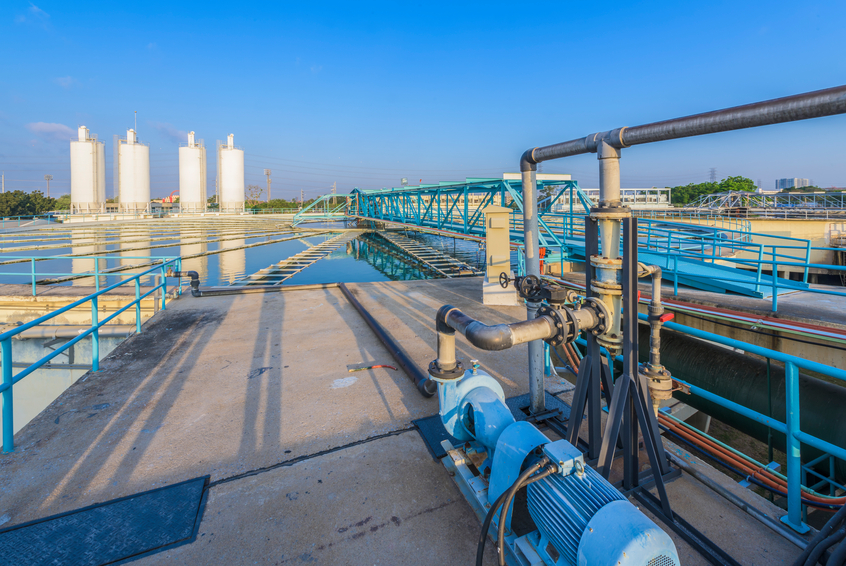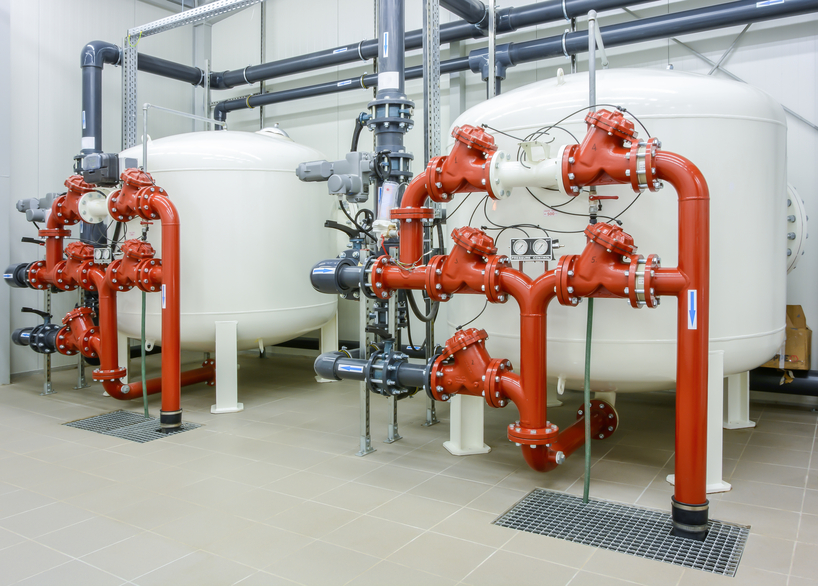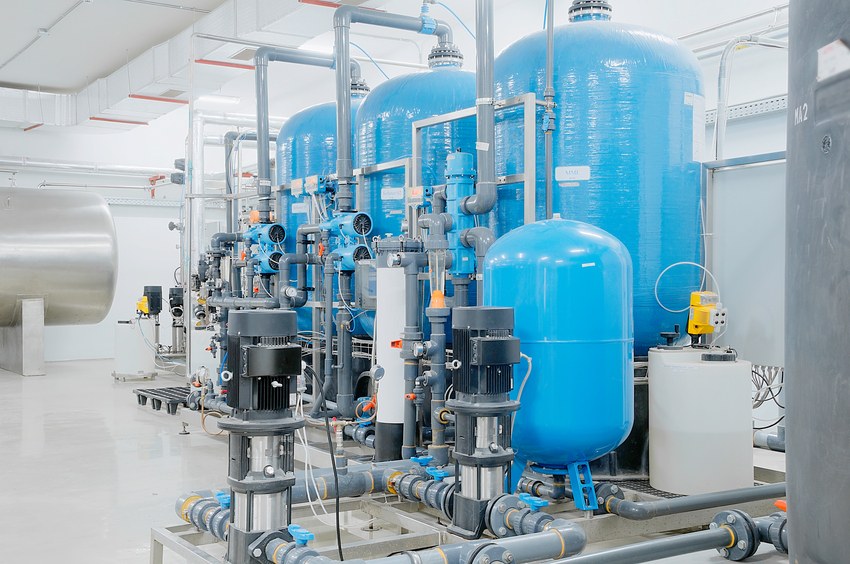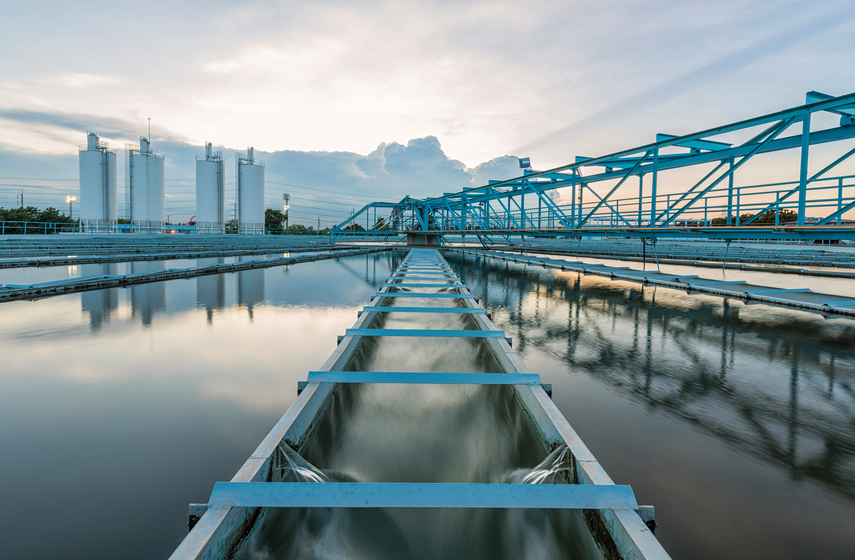District of Columbia Chemical and Ethics 20 PDH Discount Package 2
Principles of Water Treatment (H03-002)
An Introduction to Membrane Techniques for Water Desalination (H03-004)
An Introduction to Domestic Water Treatment (C02-054)
An Introduction to Chemical Cleaning of Industrial Water Systems (H03-003)
Code of Ethics for Engineers (LE1-001)
Building Field Capabilities to Respond to Drinking Water Contamination (H03-009)
Reactor Water Chemistry (H03-001)

This online engineering PDH course provides guidance on the use of this rapid, strongly oxidizing process.
Addition of hydrogen peroxide to ozonated water increases the rate of ozone decomposition and generates hydroxyl free radicals in what is known as the peroxone advanced oxidation process.
This 2 PDH online course is intended for civil, environmental, and chemical engineers who are interested in gaining knowledge about the use of the ozone/hydrogen peroxide combination known as peroxone for disinfection and oxidation. However, this course could appeal to engineers of other disciplines as well.
This PE continuing education course is intended to provide you with the following specific knowledge and skills:
- Understanding the chemistry of the peroxone disinfection/oxidation process
- Learning the similarities and differences between the molecular ozone and peroxone processes
- Familiarizing with general guidelines for the application of the peroxone process
- Understanding the advantages and disadvantages of peroxone use in comparison with other disinfection/oxidation processes
In this professional engineering CEU course, you need to review Chapter 7 titled, "Peroxone (Ozone/Hydrogen Peroxide)", which is part of the EPA Guidance Manual, "Alternative Disinfectants and Oxidants".
Upon successful completion of the quiz, print your Certificate of Completion instantly. (Note: if you are paying by check or money order, you will be able to print it after we receive your payment.) For your convenience, we will also email it to you. Please note that you can log in to your account at any time to access and print your Certificate of Completion.

This online engineering PDH course addresses the principles of ion exchange in the context of water purity. It also discusses typical water treatment methods and the basis for these methods.
Water treatment is necessary to remove the impurities that are contained in water as found in nature. Control or elimination of these impurities is necessary to combat corrosion, scale formation, and fouling of heat transfer surfaces throughout facility support systems.
This 3 PDH online course is applicable to chemical and environmental engineers, design and construction personnel, technical staff and facility operators who are interested in gaining a better understanding of the principles of water treatment.
This PE continuing education course is intended to provide you with the following specific knowledge and skills:
- Water treatment processes
- Dissolved gases
- Suspended solids
- pH control
- Water purity
In this professional engineering CEU course, you need to review Module 4, "Principles of Water Treatment" of the Department of Energy Publication DOE-HDBK-1015/1-93, "Chemistry".
Upon successful completion of the quiz, print your Certificate of Completion instantly. (Note: if you are paying by check or money order, you will be able to print it after we receive your payment.) For your convenience, we will also email it to you. Please note that you can log in to your account at any time to access and print your Certificate of Completion.

This online engineering PDH course will introduce you to techniques for water desalination using membrane technology. You will learn about the theory of electrodialysis, electrodialysis stacks, electrodialysis reversal, and reverse osmosis. It will discuss the advantages and disadvantages of system configurations and membrane materials. You will learn about the materials and equipment employed in typical membrane water desalination plants.
Water desalination systems may employ different technologies depending on a variety of technical and economic factors. One of the most important systems relies on membrane technology.
This 3 PDH online course course is intended for civil engineers, environmental engineers, mechanical engineers, electrical engineers and other design and construction professionals wanting an introduction to membrane techniques for water desalination. After completion of this course you will be prepared for advanced learning about membrane systems for water desalination, which in turn will prepare you for desalination project planning and design.
This PE continuing education online is intended to provide you with the following specific knowledge and skills:
- Learning the theory behind electrodialysis
- Learning about electrodialysis stacks and the importance of electrodialysis reversal
- Learn about osmotic pressure and the reverse osmosis technology
- Understanding the importance of energy recovery in membrane systems
- Learning about spiral-wound membranes and how they are employed in water desalination
- Understnding the advantages and disadvantages of membrane materials
In this professional engineering CEU course, you need to review the course document titled, "An Introduction to Membrane Techniques for Water Desalination".
Upon successful completion of the quiz, print your Certificate of Completion instantly. (Note: if you are paying by check or money order, you will be able to print it after we receive your payment.) For your convenience, we will also email it to you. Please note that you can log in to your account at any time to access and print your Certificate of Completion.

This online engineering PDH course provides an introduction to domestic water treatment. It includes basic information on most of the common water treatment processes for treating domestic water supplies to meet regulatory and best practices requirements.
Treatment consists of adding and/or removing substances from water so as to bring about a desired change in quality. In general, treatment is provided to protect public health or to improve the acceptability (aesthetic quality) of the finished product.
This 2 PDH online course is intended for civil and environmental engineers and other design and construction professionals seeking an introduction to domestic water treatment.
This PE continuing education course is intended to provide you with the following specific knowledge and skills:
- Learning about the methods of water treatment at the source
- Learning about coagulation and flocculation treatment
- Understanding the fundamentals of sedimentation basins and clarifiers
- Learning about disinfection issues
- Understanding the importance of corrosion and scaling control
- Knowing how to control iron and manganese
- Learning about ion exchange processes
In this professional engineering CEU course, you need to review the course document titled, "An Introduction to Domestic Water Treatment".
Upon successful completion of the quiz, print your Certificate of Completion instantly. (Note: if you are paying by check or money order, you will be able to print it after we receive your payment.) For your convenience, we will also email it to you. Please note that you can log in to your account at any time to access and print your Certificate of Completion.

This online engineering PDH course will introduce you to methods for cleaning industrial water systems with chemicals. You will learn about pre-operational cleaning which is performed to prepare water-contacted metal surfaces to receive chemical treatment to provide protection from scale, corrosion and microbiological growth. You will also learn about remedial cleaning to restore water systems that have been fouled with scale, corrosion products and microbiological growth due to inadequate or ineffective water treatment. Examples of industrial water systems for which chemical cleaning are applicable are boilers, heat exchangers, cooling towers, and chillers.
Maintenance of an effective water treatment program is essential to minimize scale and corrosion problems in industrial water systems; however, scale and deposits will often form and require remedial cleaning. If not removed, these scale and water-caused deposits may impact the safety of operations personnel, interfere with heat transfer, and cause excessive damage to, or destruction of, the water-using equipment.
This 3 PDH online course is intended for industrial, chemical and mechanical engineers, as well as, maintenance personnel and construction professionals interested in learning about the use of chemicals for cleaning industrial water systems and equipment such as boilers, heat exchangers, cooling towers and chillers.
This PE continuing education course is intended to provide you with the following specific knowledge and skills:
- Learning about pre-operational cleaning of new industrial water-using systems and equipment
- Learning about remedial cleaning of industrial water systems and equipment to restore them to optimal operating condition
- Learning about chemical cleaning methods that have largely superseded mechanical cleaning methods
- Learning about chemicals used for chemical treatment of industrial water systems
- Learning about the use of hydrochloric acid to remove carbonates scale with lesser amounts of phosphates, sulfates and silicates
- Learning about hydrochloric acid's limitations where stainless or galvanized steel is part of the system
- Learning about the use of sulfamic acid to remove scale from metal surfaces
- Learning about the importance of isolating equipment to be cleaned from other parts of the system using valves, rubber blankets, wooden bulkheads with seals, inflatable nylon or rubber bags, rubber sponge-covered plugs, or blind flanges and steel plates with rubber seals
- Learning about the recirculating cleaning process for boilers
- Learning about a circulating method for descaling smaller equipment that does not require heating
- Learning about the fill and soak method of chemical cleaning
In this professional engineering CEU course, you need to review the course document titled, "An Introduction to Chemical Cleaning of Industrial Water Systems".
Upon successful completion of the quiz, print your Certificate of Completion instantly. (Note: if you are paying by check or money order, you will be able to print it after we receive your payment.) For your convenience, we will also email it to you. Please note that you can log in to your account at any time to access and print your Certificate of Completion.

This online engineering PDH course introduces engineers to the National Society of Professional Engineers Code of Ethics. The Code provides ethical guidance to engineers in their various and often simultaneously held roles as 1) guardians of public health, safety, and welfare 2) employees, 3) employers, and 4) providers of technical service to clients.
Engineers practicing their profession encounter not only technical issues but also ethical issues. Sometimes the latter issues are easy to resolve: applying everyday, common-sense notions of honesty, openness, responsibility, and lawfulness is sufficient to guide the engineer to the appropriate decision. At other times, however, matters are more complicated. In particular, knowing what to do when two or more duties or obligations conflict can be difficult. For example, an engineer's duty to his client or employer may conflict with the engineer's duty to the general public. Codes of ethics have been formulated to help engineers address these conflicts.
This 1 PDH online course is intended for all engineers who are interested in gaining a better understanding about how to protect and respect their engineering profession in the utmost manner.
This PE continuing education course is intended to provide you with the following specific knowledge and skills:
-
Learning the six Fundamental Canons of the Code
-
Learning the five Rules of Practice
-
Learning the nine Professional Obligations
-
Understanding the definition of "Sustainable Development"
-
Understanding the scope of the Supreme Court decision regarding NSPE, competitive bidding, and antitrust law
In this professional engineering CEU course, you need to review the course document "Code of Ethics for Engineers" published by the National Society of Professional Engineers (NSPE) on July 2007. This course document is reprinted by permission of the NSPE (www.nspe.org) and may be downloaded from the NSPE's website by clicking on Code of Ethics for Engineers, or by clicking on the link below.
Once you complete your course review, you need to take a multiple-choice quiz consisting of ten (10) questions to earn 1 PDH credit. The quiz will be based on this NSPE publication.
Upon successful completion of the quiz, print your Certificate of Completion instantly. (Note: if you are paying by check or money order, you will be able to print it after we receive your payment.) For your convenience, we will also email it to you. Please note that you can log in to your account at any time to access and print your Certificate of Completion.

This online engineering PDH course provides guidance on building field capabilities in order to respond to the contamination of drinking water. The course also provides planning and implementation guidance, templates, customizable report forms, and other documentation for Sampling and Analysis (S&A) activities.
When performed in response to possible or credible drinking water contamination, the goal of Sampling and Analysis (S&A) is to confirm or rule out contamination through field and laboratory testing. It is one of the earliest utility-led activities initiated when the utility has activated its drinking water contamination response plan and continues throughout remediation and recovery if contamination is confirmed.
This 3 PDH online course is intended for chemical and environmental engineers as well as others who are interested in learning more about building field capabilities in order to respond to the contamination of drinking water.
This PE continuing education course is intended to provide you with the following specific knowledge and skills:
- Familiarizing with planning and documentation for visual site hazard assessment, sample collection, and sample packaging and shipping
- Familiarizing with planning and documentation for site safety screening, rapid field testing, and hazardous materials packaging and shipping
- Understanding the staffing requirements to perform basic and advanced field activities
- Taking into consideration field response health and safety
- Familiarizing with quality assurance and quality control
- Understanding emergency response procedures
- Familiarizing with the considerations for preparation, placement, and contents of emergency response sampling and analysis kits
Upon successful completion of the quiz, print your Certificate of Completion instantly. (Note: if you are paying by check or money order, you will be able to print it after we receive your payment.) For your convenience, we will also email it to you. Please note that you can log in to your account at any time to access and print your Certificate of Completion.

This online engineering PDH course describes the chemical measures taken to retard the corrosion often found in water systems. It also addresses the consequences of radioactivity on facility cooling water systems.
Radiation synthesis is a process that takes place in the reactor coolant system. This phenomenon is limited to the reactor coolant system because of the high flux (radiation) levels that exist in the core region and further complicate chemistry control of the reactor plant.
This 3 PDH online course is applicable to chemical engineers, design and construction personnel, technical staff and facility operators who are interested in gaining a better understanding of the reactor water chemistry.
This PE continuing education course is intended to provide you with the following specific knowledge and skills:
- Understanding water chemistry parameters
- Understanding the effects of radiation on water chemistry
In this professional engineering CEU course, you need to review Module 3, "Reactor Water Chemistry" of the Department of Energy Publication DOE-HDBK-1015/1-93, "Chemistry".
Upon successful completion of the quiz, print your Certificate of Completion instantly. (Note: if you are paying by check or money order, you will be able to print it after we receive your payment.) For your convenience, we will also email it to you. Please note that you can log in to your account at any time to access and print your Certificate of Completion.